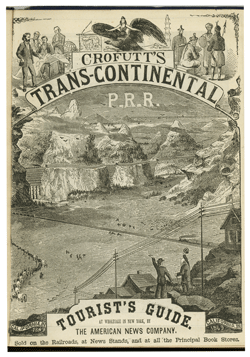With each new exhibition comes a flurry of public programs
designed to help guests dive deeply into the core concepts within them. Each exhibition provides new opportunities for
conversation and interaction between our audiences and our organization, the
exhibitions, and each other. In order to
better understand the final programmatic product let’s go back a bit and share
how we design our exhibition-related public programs.
Around six to eight months before an exhibition opens,
departments from across CHS sit down and discuss the exhibition and its core
concepts. The curator(s) will present on the conceptual framework, key themes,
and topics. Staff have the opportunity to pose questions as well as provide
suggestions and insights. The Public Program Manager (me) then begins drafting
program ideas to present to curators in a follow-up meeting. During that
follow-up meeting, drafted ideas begin to harden and afterward I am able to
begin reaching out to speakers and partners, further developing those ideas
based on what the speakers’ expertise is and how they envision their place
within the event. The collaborations between partners, speakers, and CHS staff
are integral to the vibrant final product.
On March 21st, we opened two complimentary exhibitions, Mark Ruwedel: Westward the Course of Empire and Overland to California: Commemorating the Transcontinental Railroad. Below is a brief rundown of some of our upcoming
exhibition-related programs. We hope that you mark them on your calendar, as they are
not to be missed!
Thursday, April 4th,
6:00PM
Empire’s Tracks: Indigenous Nations, Chinese
Workers, and the California Railroad
Professor of American Studies at Barnard University, Manu
Karuka, will present on his new book Empire’s
Tracks while focusing on indigenous experiences in relation to the
transcontinental railroad. He and Professor of American Indian Studies at San
Francisco State University, Joanne Barker (Lenape), will be in conversation
about indigenous history and counter sovereignty. A book signing will close the
event. Learn more.

Thursday, April
18, 6:00PM
Chinese and Chinese American Genealogies and
the California Railroads
&
Wednesday, July 24, 6:00PM
Labor Strikes and Fights and the
Transcontinental Railroad
In 1969, during the 100th anniversary of the
transcontinental railroad, Chinese American communities and descendants of
railroad workers felt a disconnect and articulated that there was a lack of
focus on their ancestors’ history and contributions. This year, during the railroad’s
150th anniversary, organizations and individuals from across
California will be highlighting the important contributions of Chinese and
Chinese Americans to the building and maintenance of the railroads.
CHS will be hosting several events to honor this
important history, the first being on April 18th with presentations by Al
Cheng, Grant Din, Sue Lee, and Paulette Liang. They will focus on how and why
Chinese and Chinese Americans are seeking to find their connection to this work,
examples of individuals who have found genealogical connections, as well as
those who have sought out but did not find a connection. Learn more.
The second event will be held July 24th and focuses on
key labor battles which involved Chinese railroad workers, including the
historic eight-day strike in 1867. Gordon Chang and Lawrence Shoup will present
on this event and other important labor battles in celebration of Laborfest,
which occurs each July.
Wednesday, May 15th,
6:00PM
Exploring the Gilded Age in California and
its Reverberations Today
On May 15th we will explore the Gilded Age in California
and its relationship to the Big Four, labor, and the railroads. How has the
Gilded Age influenced what California is today? Learn more with moderator,
William Frances Deverell (USC), panelists Richard White (Stanford), Margarite
Shaffer (Miami University), Barbara Berglund Sokolov (Presidio Historian), and
Jack Kelly (historian and author of Edge
of Anarchy). Learn more.
Thursday, June 27th,
6:00PM
Women and Their Role on the Rails
On June 27th, we explore the role women played
(or did not play) in the railroads. How did imagery of wealthy white women tell
a particular story about the railroad? How were women of color and people of
color generally excluded from the transportation system? Professor Amy Richter
of Clark University and Julia H. Lee of U.C. Irvine will present on these
questions and be available to discuss other related topics after their
presentations. Learn more.
As we move deeper into the summer we will add additional
programs, so continue to follow our Society Happenings e-newsletter and check
out our online calendar at my.californiahistoricalsociety.org for more
information.
--
Written by Patty Pforte, Programs & Visitor Experience Manager at CHS.




No comments:
Post a Comment